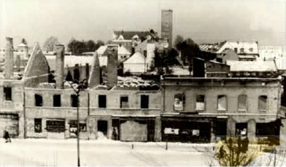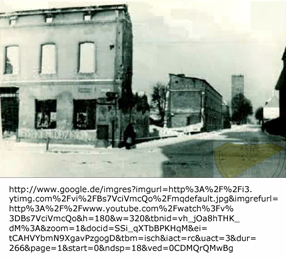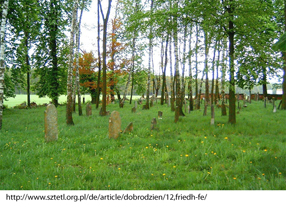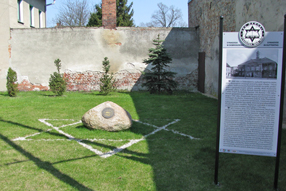 |
 |
 |
 |
 |
 |
 |
 |
Guttentag had profited by the war. After Germany marched into Poland the city was no longer a boarder-city and got new procurement and sales markets. The turnover of most companies increased by 20-30 %. But they were also some disadvantages. The distric administration was immediately relocated to Lublinitz and a lot of shops, especially craftmen-shops were closed down because the owner had to join the army. Shops which only sold goods were often run further by the wifes. E.g. the textil shop of my great-grandfather Johannes Schatka, long since taken over by his sons Ernst and Oskar, were managed by their wifes after the outbreake of WWII. But for bakeries, butcheries, carpentries and tailor shops it was not possible that the wifes manage it after the men left to become soldiers. E.g. during WWI my great-grandmother Anna Jakubek managed to run the butcherie by the help of relatives and her oldest son Hermann but in 1939 Hermann had to go to the army and the butchery had to close.
On Sunday, January 21, 1945 the Russian army marched in. During the invasion and the confusion of the following days 41 houses burnt down thereof the house of Ludwig Eisner as well as the house of my grandfather. Many women were raped, thereof the old Hamplino who was raped every day. At the beginning of February the commanding officer got the situation more and more under his control and the situation calmed down. In the following years some Germans came back, others who stayed first, went to Germany because they hadn’t got a chance to get an adequate job in Poland like Mr. Lissek who became late a prosecutor in Fula, West-Germany.
Read here, what the Guttentag catholic priest Gladysz
1947 wrote to the Eisner family about what happend since 1938. - in German -
My family fled shortly before the Russian Army marched in, on January 16, 1945, rashly, in the bitter cold. They had celebrated Christmas 1944 peacefully. My eldest uncle remembered later that he was presented with a skiing-outfit. In the morning of January 16 the children were at school. At midday they were told to be ready for the flight within one hour. The children had to wear all their cloth in layers. They fled in dirty cattle wagons. My youngest uncle was not yet one year old cried the whole night through. Fellow passengers who couldn’t stand his cry any longer threatened to throw him out of the train. Desperate people clinged to the outside of the train, but froze off. It took three days to go to Breslau (today Wrocław). There the streets were plastered with corpses. The family slept on the stairs of a theater. All were deloused. My grandfather had stayed in Guttentag to save what he could. He joined his family not until very much later.
The flight lasted more than a year with several stoppings along the way. One stop was at relatives in Dessau. These were reluctant to welcome their relatives and ate at night in order not to have to share with their relatives.
For some time the family lived in a tiny house in a village. The village had only a village school with one class. My eldest uncle, 14 years old at that time, couldn’t learn anything there. Even at Guttentag his education had let a lot to wish for. School was canceled often so that the kids could help to bring in the harvest and more. But also after the flight he got any formal education because my grandfather needed him building up his new shoe-shop.
After a while the Soviet army confiscated the house for its own use and the Schatka family continued the flight. Eventually, they settled down in Lippstadt (Western Germany) where the family initially inhabited a single room that comprised only one bed. Her whole life my mother was afraid of and disgusted at animals. The reason probably was that she heart all night how the mice came under her bed and eat from the food stored under the bed.
Today Dobrodzien treats its Jewish heritage with consideration and respect. E.g. the Jewish cemetery has been restored and at the former place of the synagoge a memorial was erected.



